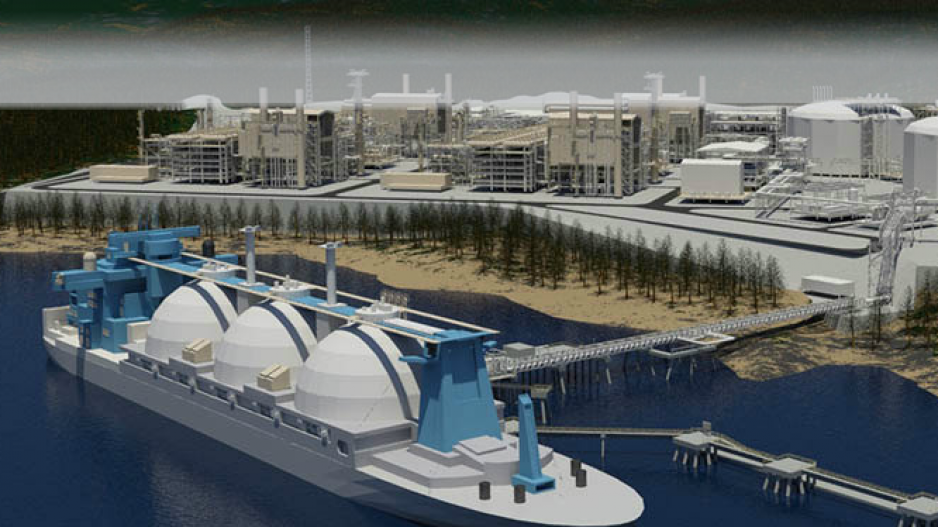Chevron Corp. (NYSE:CVX) is pulling the plug on its Kitimat LNG project -- a move that suggests the LNG Canada project may be the only large-scale LNG project built in B.C., according to one analyst.
The company, which owns 50% in the Kitimat LNG project,says it will halt further funding of the project, after failing to find a buyer.
Kitimat LNG was the only other major LNG project on the scale of the LNG Canada project that seemed to still have a chance of being built, even though final investment decisions on it were deferred. Several other major B.C. proposals have been abandoned.
Chevron's withdrawal from the project is not indicative of a lack of demand for LNG, but rather an inability of Canadian projects to compete, says Ian Archer, global natural gas analyst with IHS Markit.
"Cancellation probably means the project is off the books for a significant amount of time, if not completely dead," Archer told BIV News. "The only thing left is kind of small stuff that's less advanced with smaller players who kind of lack global LNG experience.
"Since this project started, the LNG market has changed a lot and it's very, very competitive. If you do not quickly get all your ducks in a row, you can quickly get over-taken."
Chevron owns a 50% stake in the project and related natural gas pipeline, but has been trying to divest its share of the project for more than a year. The project's owners have changed hands many times since it was first proposed.
"Despite the many challenges posed by COVID-19, Chevron engaged in a process to divest while continuing to work with its joint venture partner, Woodside, on agreed project activities that brought value to the asset or were required for regulatory and operational compliance," the company says on its Kitimat LNG website.
But the company has been unable to find a buyer.
"At this time, it is Chevron’s intent to cease Chevron-funded further feasibility work for the proposed Kitimat LNG project," the company says. "Chevron’s other assets in Canada are not included in this decision. This decision only impacts the proposed Kitimat LNG project."
Those other assets include the proposed 471-kilometre Pacific Trails Pipeline, which is approved but not built, as well as upstream natural gas assets.
The other partner in the project is Woodside.Petroleum, an Australian company. It's not clear if Woodside likewise plans abandon the project. Last year, it reported a US$720 million impairment on Kitimat LNG.
In its most recent annual financial report, Woodside appeared to remain committed to the Canadian project.
"Woodside remains committed to working with our stakeholders to improve the cost competitiveness of the proposed project," it said in its 2020 annual report.
However, that report was published before Chevron announced it will pull all further funding of the Kitimat project.
"Back about the same time that Chevron was looking at selling their piece, Woodside had mentioned they were looking at divesting too," Archer said. "So you had both partners in Kitimat looking to potentially divest, which is never a good sign."
He added Woodside has "a lot of irons in the fire already" in Australia.
Ellis Ross, Liberal MLA for Skeena, and LNG industry supporter, expressed disappointment with the latest development.
"Given the lack of provincial and federal support, plus the reluctance of anyone willing to risk investment in B.C., I hoped this day wouldn’t come," he said.
He said the project might not necessarily be dead, but would require new investors.
"The certificate is safe, the terminal and pipeline right of way is secured," he said, "but everything depends on some company being interested in the equity share."
In a recent investor presentation, Chevron CEO Michael Wirth said the company's strategy is to focus less on large mega-projects and on smaller projects with higher returns.
"We've become less reliant on large scale capital projects," he said.




